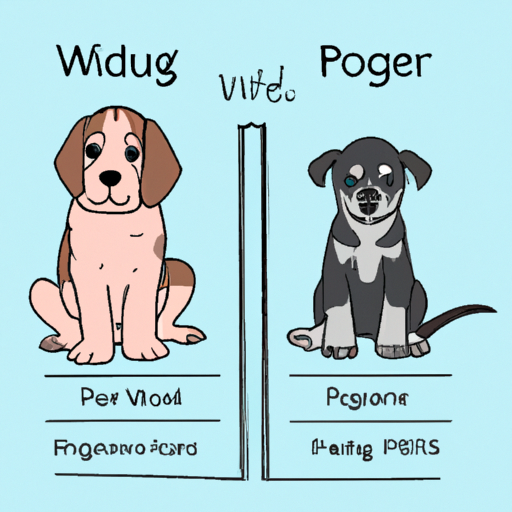Understanding the Puppy Stage
You might think that your adorable little fur friend is a puppy forever. But, in reality, a dog’s age and growth vary with its breed and size. Small breed dogs mature faster than larger breeds. While some may be considered adults at 9 months, others may not reach adulthood until they’re 1 or 2 years old.
Factors Determining Puppyhood Duration
The duration of puppyhood is not set in stone. Various factors come into play:
- Breed: Smaller breeds tend to mature faster than larger ones. For instance, a Chihuahua is considered an adult by 9-12 months, while a Great Dane may not be fully grown until 2 years old.
- Size: The size of a dog can also influence when they stop being a puppy. Small dogs (under 20 pounds) are usually fully grown by 10-12 months, while medium dogs reach adulthood around 12-16 months, and large dogs might not be fully grown until they are 2 years old or more.
- Health: The health of your dog can also influence their growth. Nutritious diet, regular exercise, and routine check-ups can help ensure a healthy and steady growth process.
| Size of Dog | Age when Considered Adult |
|---|---|
| Small (<20 lbs) | 10-12 months |
| Medium (20-60 lbs) | 12-16 months |
| Large (>60 lbs) | 18-24 months |
How to Care for Your Puppy at Different Stages
Every stage of your dog’s life requires different care. Here’s a basic guide:
- 0-3 months: This is the most critical period for your puppy. They need plenty of sleep, a healthy diet, and regular visits to the veterinarian for vaccinations.
- 4-6 months: Your puppy will begin teething. Provide chew toys and continue with their health check-ups.
- 7-12 months: This is a period of rapid growth. Continue to provide a healthy diet, plenty of exercise, and start training your puppy with basic commands.
Transitioning from Puppyhood to Adulthood
Transitioning from puppyhood to adulthood can be a challenging time for you, as well as your furry friend. This is when your dog will reach sexual maturity and may start to exhibit new behaviors. It’s a time to be patient, consistent in your training, and to offer lots of love and reassurance.
Frequently Asked Questions (FAQs)
1. When is a dog no longer a puppy?
Generally, a dog is no longer considered a puppy once it reaches its first birthday. However, this can vary depending on the breed and size of the dog.
2. How can I tell if my dog is still a puppy?
Physical signs such as size and teeth can be an indicator. Behaviorally, puppies are often more energetic and less disciplined than adult dogs.
3. When should I switch from puppy food to adult food?
Typically, you should start transitioning your dog to adult food when they reach 90% of their anticipated adult weight. This usually happens by their first birthday, but it can be later for large breed dogs.
Remember, you’re not just a pet owner—you’re a caregiver, a mentor, and a best friend to your dog. Ensuring they transition smoothly from a playful puppy to a mature adult is one of the greatest gifts you can give them.



